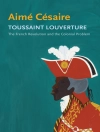What does it mean to be young in a country that is changing so fast? What does it mean to be young in a place ruled by one Party, during a time of intense globalization and exposure to different cultures?
This fascinating and informative book explores the lives of Chinese youth and examines their experiences, the ways in which they are represented in the media, and their interactions with old and, especially, new media. The authors describe and analyze complex entanglements among family, school, workplace and the state, engaging with the multiplicity of Chinese youth cultures. Their case studies include, among others, the romantic fantasies articulated by pop idols in TV dramas in contrast with young students working hard for their entrance exams and dream careers.
This book will be essential reading for students and scholars of youth culture, the sociology of youth and China studies more broadly. By showing how Chinese youth negotiate these regimes by carving out their own temporary spaces – from becoming a goldfarmer in a virtual economy to performing as a cosplayer – this book ultimately poses the question: Will the current system be able to accommodate this rapidly increasing diversity?
Table des matières
* Map
* Chronology
* Acknowledgements
* Introduction: Youth in China
* No More Revolution
* Youth Scapes
* Changing Youth Values
* The Chapters
* Creative Warfare
* Chapter 1: Youth and Power: Education, Family, and the State
* Introduction
* Political Values and Party Membership
* Family and Familism
* Pedagogy and Education
* Conclusion
* Chapter 2: Dressing up the Future: Chinese Youth Today
* Introduction
* Global Inauthenticities
* Fashion Styles
* Sonic Styles
* Digital Styles
* Conclusion
* Chapter 3: Localization of Regional Culture
* Introduction
* Localizing TV format from without
* Regional TV Formats and Class Re-imagination
* Running Man: The Turn to Gamification
* Popular Music and Fandom
* The Chinese AKB48: irrelevance to politics
* TFBoys and Korean Imagination
* Conclusion
* Chapter 4 Chinese Heteronormativity and Its Discontents
* Introduction
* Chinese Genders?
* Heteronormative Aspirations I: Survey Findings
* Heteronormative Aspirations II: Media Representations
* Unsettling Heteronormativity I: Romance Comedy
* Unsettling Heteronormativity II: Queer China
* Unsettling Heteronormativity III: Sex and Feminism
* Conclusion
* Chapter 5: Mobility, Marginalization and Desire
* Introduction
* Migrant Youth, Representation and Desire
* Migrant Youth as Media Producers
* Migrant Youth and New Media Technologies
* Gaming and Immaterial Labour
* Goldfarming versus Farming
* From Village to Art Village: New Spaces and Mobility
* Conclusion
* Conclusion: Youth and Hope
* References
A propos de l’auteur
Jeroen de Kloet is Professor in Globalization Studies and Director of the Amsterdam Centre for Globalisation Studies (AGCS) at the University of Amsterdam
Anthony Y. H. Fung is Professor and Director of the School of Journalism and Communication at the Chinese University of Hong Kong, he is also Professor at Beijing Normal University and Jinan University in China












